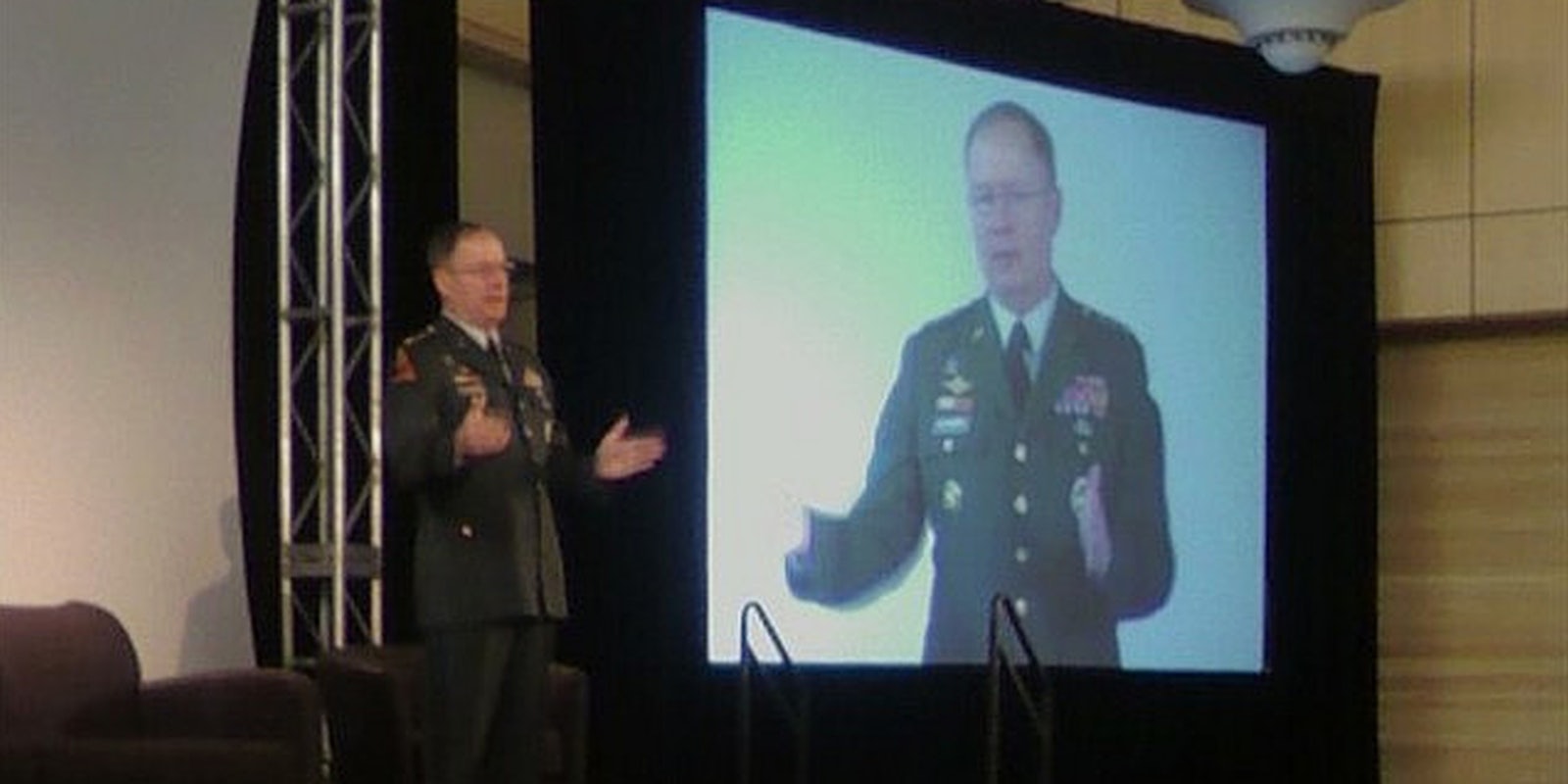At a public event Tuesday, sponsored by Raytheon and Politico, the National Security Agency’s director, Gen. Keith Alexander, indicated that far from backing off on surveillance, the NSA ought to do more of it. And they should start with your bank.
Politicians, Alexander said, will need to decide when the NSA should step in when a cyberattack hits. An example? The financial sector.
“You have to have the rules set up so you can defend Wall Street,” said Alexander.
“Drawing an analogy to how the military detects an incoming missile with radar and other sensors,” Shane Harris reported on Foreign Policy’s Killer Apps blog. “Alexander imagined NSA being able to spot ‘a cyber packet that’s about to destroy Wall Street.’”
Wait. What? A “cyber packet”? What’s a “cyber packet”? Did he mean the kind of packet a packet sniffer sniffs? That doesn’t make sense.
As Harris put it, “[T]he idea that a single, tiny packet could wipe out Wall Street is laughable. That’s like saying a paintball can take out a tank.”
Perhaps Alexander was worried about hackers stealing banks’ login info and passwords, or a virus—like the Stuxnet worm used against Iran’s nuclear program—crippling Wall Street’s systems.
Whatever type of attack Alexander is envisioning, he believes it warrants a broadening of the NSA’s surveillance powers in the financial sector. Alexander argued his agency should be not be forced to wait until an attack happens to take action. “That doesn’t make sense… we need that capability” to strike first, he said.
How? Alexander believes that the same set of interlocking mass-information harvesting systems the NSA currently uses on undersea cables, phone calls, and Internet activity should be used on the financial information moving in and out of banks, credit unions, investment advisors, stock exchanges, and so on.
Two years ago, Alexander met with financial company executives and advocated installing monitoring equipment directly onto the banking networks. The executives are said to have rejected that proposal. They felt it was unwarranted. Literally.
H/T FP | Photo by Lewis Shepherd/Flickr


